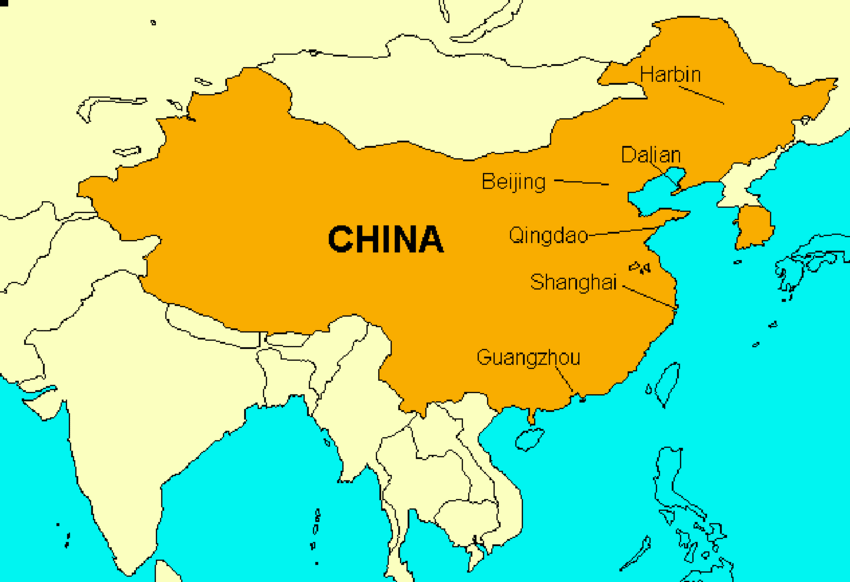
China’s influence in the world has long sparked suspicion and envy. This is to be expected as such a giant country going from zero to one hundred in what seems no time, naturally raises these things. Over the recent years, however, we have seen not just an increase in suspicion, but also a campaign (aimed at the third world) to define the Chinese as colonialists who seek to do to us what the Europeans and Americans did in the past and that with this knowledge we should remain with the Euro American alliance which has atoned for its sins of colonialism.
This idea finds fertile ground, and this again is to be expected. The third world is a region which was made poor and dependent because of colonialism and as a result we in these parts of the world tend to listen to anti-imperialist arguments and look upon with suspicion those who we have been told wish to see us as colonies again. But is there any truth to the statements? Is China a neo-colonial behemoth who wishes to devour the third world in the same way as the Europeans and Americans? Could it be that they truly do wish us ill, and if that is the case should we, as is often implied and openly stated, remain wedded to our former colonial masters?
In order to answer this pressing question, I feel we need to first define what colonialism and neo-colonialism are and see if what China practices matches up to the definition. Colonialism can be defined as the policy of acquiring full or partial control over another country, occupying it with settlers and exploiting it economically. Neo-colonialism can be defined as the use of economic, political, cultural, or other pressures to control or influence other countries, especially former dependencies.
With these definitions in mind, let us look at China’s actions around the world. Do we see Chinese gunboats bombarding the coast of third world countries, forcing themselves in and occupying land? Do we see at the point of a gun demand that third world countries hand over parcels of land? Do we see Chinese citizens coming to these occupied parcels of land kicking out the locals? We do not, but it could be argued (and correctly) that those days are gone, and we have entered the neo-colonial age. Remembering the definition, let us look at China’s actions across the world.
Has China stated that if third world countries trade with America or Europe that they would pull out? Has China been using its diplomats to isolate nations so they can come in and pick up goods and resources on the cheap? Has China released hundreds of movies praising their lifestyles and demonising the lifestyles in the third world in order to subtly project dominance? Has China threatened to block countries from international trade if they don’t act in the exact way that China wishes? Again, we do not, so using the definitions of both colonialism and neo-colonialism and looking at China’s actions, we can safely state that they are not on the way to becoming the new America or Britain.
So, what is China, and should we be worried about them? China is a socialist country run by a communist party, but when it comes to international trade, they approach it from a simple capitalist (read business) point of view, aiming to get the best deal possible. In doing this they write up deals which are advantageous to them. For example, they may provide a road grant and build the road in exchange for a port for X period of time. These deals can be exploitative, and can even result in the nation losing the assets to the Chinese investors, something which should be a real fear for any nationalist.
But this gripe, real as it is (the loss of assets to the Chinese) is not colonialist or even neo-colonialist, this is simple capitalism and, in some cases, bad deal-making on the part of the recipient state. The Chinese in the form of good businessmen are more than open to renegotiating deals as was seen with Greece, South Africa and Venezuela in recent years, and during this COVID crisis we see where the Chinese have been taking the lead (albeit a slow one) on debt re-negotiations while the Europeans and Americans fall by the wayside (waiting they say to see what the Chinese offer). The very real issues faced in Sri Lanka and Zambia can be explained by two things, a capitalist deal and a local government which did not have the interest of the people at heart and thus went along with it. As mean as it is, it is hardly imperialism and warrants serious introspection on the part of the local government.
China even goes and invests where western neo-colonial nations fear to venture. We see this in Zimbabwe (a nation sanctioned by its former colonial master and thus finding it hard to do business on the global scene) where this energy deficient country is welcoming China’s grant to build a power plant run on coal. This action is hardly imperialist and mimics many Chinese deals globally where the Chinese company has a 51% stake and the locals the remaining 49. This is something which we never saw during the heyday of neo-colonialism. Now it is true, the deal is not without its flaws the biggest being that it is run on filthy coal which will affect the health of the locals. But this again is not imperialism, just capitalism and as such the system states build the cheapest (coal) and get the most profit.
With these questions answered as it relates to China, we may ask, what of the former colonial masters? It is clear based on their actions of restricting trade with nations if they trade with anyone they don’t like, and isolating governments they disagree with so they collapse and they may benefit from the resources, we see where the old masters have not learned a new tune and continue to oppress and if given half a chance will increase it.
The thing we have an issue with is capitalism, for even in its most polite form as seen with China, it demands that one party be a loser and a system built on winners and losers is bound to collapse and meet resentment no matter how polite and nice it may be. What is needed on both a local and regional level is a movement beyond capitalism, one which does not have the winner-loser mentality, and which does not have the whiff of oppression. This means more inward-looking and more regionalism. It means building up local industries and trading within the global south on rules beneficial to all so all may be able to advance without feeling like we are selling our metaphorical souls.
We need to combat capitalism and come up with a better economic structure or we will find ourselves in the same situation one hundred years from now. It may be Trinidad, it may be a unified Korea or it may be Ghana who treats the global south in the fashion which China treats it now and they would still be met with the same suspicion and vitriol. A movement in the global south towards regionalism, integration and socialism is one alternative to the current quagmire. It would enable the growth which we in these regions have been longing for while also ensuring that it (growth) is equitable and just in its distribution, not exploitative even if it is polite.



